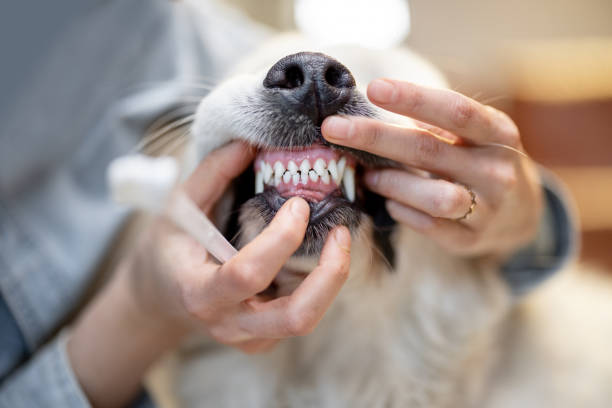Just like humans, dogs require proper dental care to lead a healthy life. While many pet owners focus on diet, exercise, and grooming, dental care often takes a back seat. However, neglecting your dog's dental health can lead to a myriad of health issues. Let's dive into the importance of dental care for dogs and how to go about it.
Why Dental Health Matters
Dental health is a crucial aspect of a dog's overall well-being. Poor dental hygiene can lead to more than just bad breath and unsightly teeth.
Key Reasons for Dental Care:
- Prevention of Disease: Dental issues can lead to severe health conditions such as heart disease.
- Comfort and Well-being: Dental problems can cause discomfort and pain, affecting a dog's quality of life.
- Longevity: Proper dental care can contribute to a longer, healthier life for your dog.
Common Dental Issues
Understanding common dental issues can help you take preventive measures and seek timely treatment.
Types of Dental Problems:
- Gingivitis: Inflammation of the gums.
- Periodontal Disease: Advanced gum disease that can lead to tooth loss.
- Plaque and Tartar Build-up: Accumulation of debris on teeth.
- Tooth Decay: Rare but possible, often resulting from a high-sugar diet.
Table: Severity of Dental Issues
Dental Issue |
Severity |
Treatment Required |
| Gingivitis | Mild | Regular Cleaning |
| Periodontal Disease | Severe | Surgical Treatment |
| Plaque and Tartar | Moderate | Dental Cleaning |
| Tooth Decay | Severe | Tooth Extraction |
Symptoms of Dental Problems
Early detection of dental problems can make treatment easier and less costly. Here are some symptoms to watch for.
Signs of Dental Issues:
- Bad breath
- Red or swollen gums
- Difficulty chewing or eating
- Excessive drooling
- Pawing at the mouth or face

Treatment Options
If you notice signs of dental issues in your dog, consult your vet for a thorough examination and tailored treatment plan.
Common Treatments:
- Professional Cleaning: Often done under anaesthesia.
- Tooth Extraction: In severe cases where the tooth is decayed or broken.
- Medication: Antibiotics or anti-inflammatory medication for infections and inflammation.
Considerations:
- Cost: Dental treatments can be expensive, ranging from £150 to £1,000 depending on the severity.
- Recovery Time: Your dog may require a few days to a couple of weeks for full recovery.
Prevention is Better than Cure
Preventive dental care can save you and your dog from the discomfort and cost associated with dental problems.
Preventive Measures:
- Regular Brushing: At least three times a week.
- Dental Chews: Specially formulated chews that help clean teeth.
- Routine Check-ups: Yearly dental check-ups with your vet.
FAQs
Q: How often should I brush my dog's teeth?
A: Ideally, you should brush your dog's teeth at least three times a week. Daily is even better.
Q: Are dental chews effective?
A: While not a replacement for brushing, dental chews can be a supplementary tool for dental hygiene.
Q: Can dental issues lead to other health problems?
A: Yes, untreated dental issues can result in heart disease, kidney infections, and other serious conditions.
Conclusion
Dental care is a vital, yet often overlooked aspect of canine health. A proactive approach to dental hygiene can prevent many common dental issues and contribute to your dog's overall well-being. Make dental care a regular part of your dog's routine, and you'll be rewarded with a happier, healthier pet.




